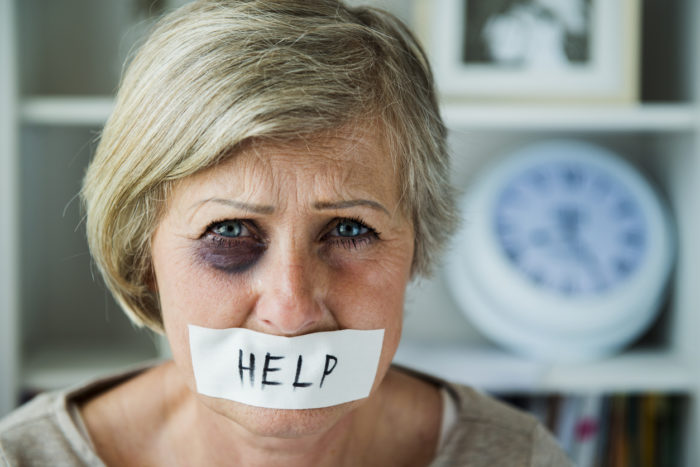1 Incident Too Many — Crime in Nursing Homes
Nursing-home nightmares continue to plague the country, from California to Texas to Minnesota to Pennsylvania. But perhaps no other state is as impacted by the abuse, neglect and robbery of the old and infirm as Florida.
There are nearly 700 licensed facilities from the Keys to the Panhandle that provide an approximate 84,000 spaces for those in need of care. The problem is, when an elder’s family puts a loved one in the care of one of those licensed facilities, all too often the care is woefully inadequate.
So says a federal report by the U.S. Department of Health and Human Services’ Office of Inspector General (OIG) titled “Early Alert: The Centers for Medicare & Medicaid Services Has Inadequate Procedures To Ensure That Incidents of Potential Abuse or Neglect at Skilled Nursing Facilities Are Identified and Reported in Accordance With Applicable Requirements.” The report lists 134 incidents of physical and sexual assault, rape, sadism and unspecified maltreatment affecting Medicare patients in nursing homes between Jan. 1, 2015 and Dec. 31, 2016.
“Many of the incidents of potential abuse or neglect that we identified may not have been reported to law enforcement,” states the report, which was sent to Seema Verma, administrator of the Centers for Medicare & Medicaid Services (CMS.) “According to the records we reviewed, 96 of the 134 (72 percent) incidents were reported to local law enforcement. However, we found no evidence in the hospital records that the remaining 38 incidents (28 percent) were reported to local law enforcement despite State mandatory reporting laws requiring the hospitals’ medical staff to do so.”
The incidents occurred in 33 states, with the highest numbers in Illinois (17) and Michigan (13). Texas accounted for nine, California for eight, New York and Ohio for seven apiece and Florida for six. One is too many,
“There are clearly major, major problems that are resulting in serious injuries, rip-offs and even deaths,” Minnesota Democratic Sen. Amy Klobuchar told the Star Tribune in an article titled “Klobuchar presses for tougher action against abuse in senior homes, citing Star Tribune series.” “We need to look at everything from the timeliness of the [abuse] investigations, to the notification of family members, to our federal laws…and come up with some solutions.”
The newspaper published a five-day series in November 2017 detailing a failing system of regulation, one in which those in charge of investigating incidents of abuse, neglect and robbery don’t.
“I write to urge the Department of Health and Human Services (HHS) to take additional actions to prevent and more effectively respond to elder abuse in nursing homes and assisted-living facilities,” Klobuchar said in a letter to HHS acting secretary Eric Hargan. “A recent report revealed troubling accounts of physical and sexual abuse of senior citizens in Minnesota nursing homes and assisted-living facilities. Many of these incidents were either insufficiently investigated or not investigated at all.”
The Star Tribune series found that, of the 25,000-plus crimes identified in 2016, an alarming 97 percent never were pursued.
“The report also discussed how the facilities systematically failed to notify the families and guardians of victims when incidents occurred, which prevented family members from advocating on behalf of their loved ones, removing them from dangerous situations, or otherwise ensuring they received the treatment and assistance they needed,” Klobuchar said in the letter.
That sums up the sad state of affairs in Minnesota. The stories repeat themselves throughout the United States. In Pennsylvania, police inaction is cited as the reason elders remain unprotected from abuse in nursing homes.
“The police don’t do anything when we call,” Pennsylvania Health Care Association spokesman Eric Kiehl told the Reading Eagle in an article titled “Failing Care: Ensuring crimes against nursing home residents are reported.” “We can’t do the investigation.”
In Florida, where the nursing-home business is a $20-billion economic engine, a look at the bottom line is in order when considering the quality of care. Thinner staffs serving a full house of “heads in beds,” to use a tourism-industry slang, means more revenue. The average cost per year for a semi-private room is $87,600. The cost rises to $96,725 for a private room. The data, provided by the Florida Health Care Association, also says the population of 65-and-older Americans will reach 71.5 million by 2026.
For daughters and sons with fathers and mothers in nursing homes, frequent visits are a must. It also is a good idea to meet as many of the aides as possible and ask how they think their patient is doing. If a red flag arises, here is how to report it:
- Call the Florida Abuse Hotline at 800-962-2873.
- Go to the Department of Florida Children and Families Web site at www.dcf.state.fl.us/programs/abuse/report.shtml.
- Download the fax reporting form here and send it 800-914-0004.
Share This



